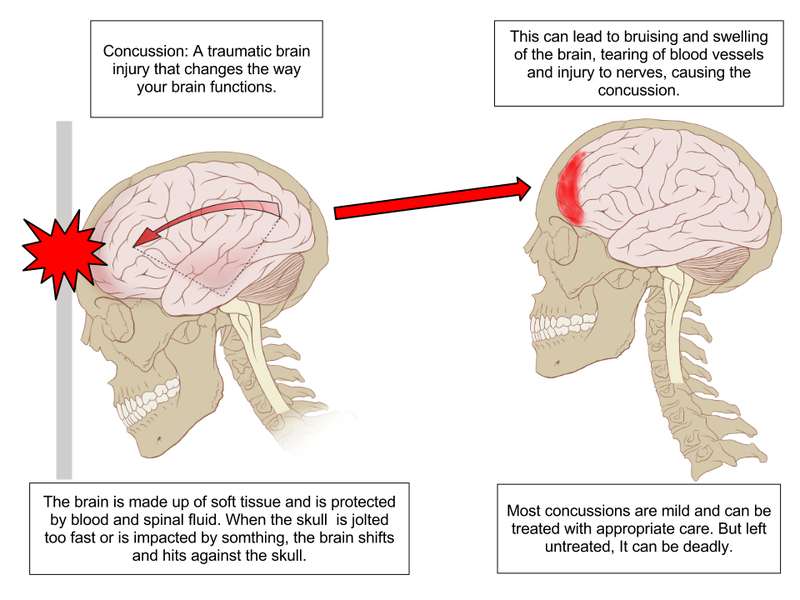
It has not been firmly stated yet but it is considered that repetitive mild traumatic brain injuries can increase the negative impact on the overall physical and cognitive performance of the injured person. To be more precise, multiple MTBIs may increase the risk of getting such diseases as chronic encephalopathy (or dementia), clinical depression, Alzheimer’s and Parkinson’s disease later. Researches on the issue are constantly conducted and some assumptions can be already made concerning it.
Primary Mild Traumatic Brain Injury: Overall Prognosis
Most MTBIs symptoms, both cognitive and physical, generally decrease within several weeks. Here the recovery ability of the patient depends on many factors that can be subdivided into:
1. Personal: age, physical and intellectual abilities.
2. Social: family and social background, support and coping strategies, social and financial status.
All the mentioned factors influence the overall prognosis that can be better in the primary damage case if compared to multiple concussion one.
Assumed Impairments in Later Life
While acute symptoms of most primary traumatic brain injuries usually resolve relatively quickly (within weeks), post-traumatic dementia like symptoms may appear many years after the injury.
Thus, assumed cumulative damages include:
• Chronic traumatic encephalopathy (or declining mental ability) shares features with Parkinson’s and Alzheimer’s diseases and is characterized by the following symptoms:
1. Motor: mild incoordination, dysarthria, intention tremor, rigidity, etc.
2. Psychiatric: aggression, irritability, inappropriateness, excessive sexual demands, etc.
3. Cognitive: slowed speech, memory and attention impairments, etc.
• Clinical depression is generally characterized by fatigue, somnipathy, significant weight gain or loss, feeling of guilt, worthlessness, death and suicide thoughts, diminished interest in previously favorite activities, impaired concentration, etc.
• Alzheimer disease. Although many people associate this disease with getting older, the latest researches suggest that multiple traumatic brain injuries can cause disorders that are typical for Alzheimer disease. Although concussion does look much like early Alzheimer’s disease, still additional research should be conducted to either confirm this hypothesis or reject it.
More information about healthcare, diseases, disorders and online pharmacies here: www.canadianhealthcaremalll.com
• Parkinson’s disease. Concussion is also considered to be a hypothetic risk factor for Parkinson’s. The main symptom of this condition, namely movement disorder, arises quite often after the brain injury. Still, again, more research should be undertaken on this assumption.
Some of the stated above impairments are hypothetic, some have already proved their relation to repeated traumatic brain injuries. For the time being we can only wait for other extensive researches that will reveal if there is any relationship between prior concussion and the mentioned above disorders.